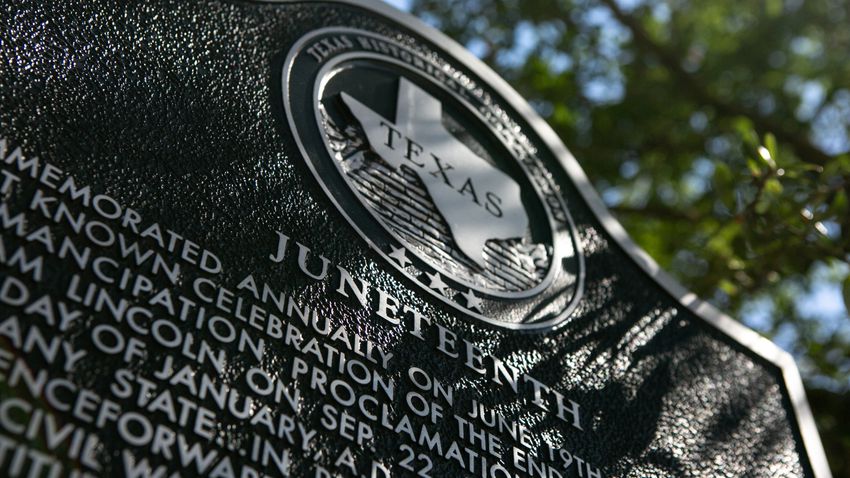
Juneteenth, the newest designated federal celebration, is a holiday that the United States recognizes on June 19th. It commemorates the emancipation of enslaved African Americans and marks the day in 1865 when Union soldiers arrived in Galveston, Texas to announce the end of slavery. Juneteenth is a significant milestone in American history and is recognized as a day to celebrate freedom, reflect on the struggles of the past, and promote equality and justice for all.
As a holiday that falls during summer break for many schools, it may not be widely commemorated in classrooms. However, it is still a milestone holiday that deserves equal recognition for its importance in American history.
An Important Milestone and Holiday
Juneteenth’s journey to becoming a designated holiday has been a result of grassroots efforts and advocacy. The commemoration of the end of slavery originated in Texas and was first celebrated in 1866, the year after the initial announcement of emancipation. Communities in Texas and the south initially organized events, picnics, and gatherings to commemorate the day throughout the holiday’s history.
Over the years, Juneteenth celebrations spread to other states and communities across the United States. The holiday gained recognition and significance within the African American community, fostering a sense of pride and remembrance. Starting in the 20th century, various states began recognizing Juneteenth as an official state holiday or observance. Texas was the first to do so in 1980, and by 2020, nearly all U.S. states officially acknowledged Juneteenth in some capacity. The movement to establish Juneteenth as a national holiday gained momentum in recent years. Advocacy groups, community leaders, and individuals played a vital role in raising awareness about Juneteenth’s historical significance and pushing for its national recognition.
On June 17, 2021, the United States Congress passed a bill to designate Juneteenth as a federal holiday. It received bipartisan support and was signed into law by President Joe Biden on June 17, 2021, marking the official start of Juneteenth as a federal holiday. The designation of Juneteenth as a federal holiday represents a broader acknowledgment of the importance of African American history and the ongoing struggle for racial equality in the United States.
Juneteenth Themes
As a federal holiday, Juneteenth is important because it commemorates the end of slavery, highlights a crucial moment in American history, celebrates freedom, promotes education and awareness, and advocates for racial equality and justice. In the classroom, teachers can connect the holiday themes with other historical events of emancipation, social justice and equality movements, and the African American experience in the United States through the following themes. Teachers can connect this theme to teaching about the period of the Civil War, post-War Reconstruction, and modern African American history, like the Civil Rights movement and the Black Lives Matter movement.
- Emancipation: Juneteenth commemorates the emancipation of enslaved African Americans, symbolizing the end of slavery in the United States. It represents the recognition of fundamental human rights and the abolition of an institution that caused immense suffering and injustice. Teachers can connect the theme of Emancipation to specific periods in United States history like the Civil War, Reconstruction Era, or Jim Crow.
- Historical significance: Juneteenth marks a pivotal moment in United States history. It highlights the delayed news of freedom reaching enslaved individuals in Texas, even though the Emancipation Proclamation had been issued two and a half years earlier. It underscores the challenges and barriers faced by African Americans in their quest for freedom and equality. Teachers should not shy away from the overall historical significance and highlight the inequality throughout the South during this time.
- Celebration of freedom: Juneteenth is a day of celebration and reflection. It provides an opportunity for African Americans and allies to honor the resilience, strength, and cultural contributions of the Black community throughout history. It serves as a reminder of the progress made and the ongoing struggle for racial justice.
- Education and awareness: Juneteenth encourages education and awareness about the history and experiences of African Americans. It fosters conversations about slavery, the Civil War, Reconstruction, and the long-lasting impacts of systemic racism. The holiday also serves as a call to action for addressing racial disparities and promoting equality and justice for all. It reminds society of the importance of actively working towards dismantling systemic racism and ensuring that all individuals are treated with dignity and respect. By understanding this history, individuals can work towards creating a more inclusive and equitable society.

How to Commemorate Juneteenth on the Day and Beyond
During the weeks leading up to the holiday and on the day, every American can do their part to commemorate and reflect. Commemorating Juneteenth can take various forms, and it often involves a combination of reflection, celebration, education, and community engagement. Discussing the themes in any United States history classroom at any time throughout the year can be important and reflective. Teachers can foster dialogue and conversations regarding the holiday, race, and the history of inequality in the United States.
Take time to educate yourself about the history of the holiday and the experiences of African Americans. Read books, watch documentaries, or explore online resources that delve into the significance of the holiday and its historical context. Reflect on the progress made and the work that remains in achieving racial equality inside and outside the classroom.
Additionally, there are a variety of local and global community-based events and advocacy movements that anyone can participate in to commemorate Juneteenth.
Attend Juneteenth Events
Participate in local Juneteenth events and celebrations in your community. These events may include parades, festivals, concerts, art exhibitions, and cultural performances. Engage with the traditions, music, food, and stories that highlight the richness and resilience of African American culture.
Support Black-Owned Businesses
Show support for Black-owned businesses by shopping at their establishments or using their services. This can contribute to economic empowerment within the Black community and promote sustainable growth.
Volunteer and Engage in Community Service
Get involved in community service initiatives that address social and racial issues. Volunteer with organizations working towards racial justice, participate in educational programs, or contribute your skills and resources to uplift marginalized communities. Use Juneteenth as a platform to advocate for social and political change. Support organizations and initiatives dedicated to racial justice, voting rights, criminal justice reform, and other causes that promote equality and address systemic racism.
As a reminder, commemorating Juneteenth is not a one-day event but an ongoing commitment to promoting equality, justice, and respect for all individuals. Teachers can use the holiday as a way to examine how the United States is changing, but also how far there is to go in terms of human rights.
This blog can be used in the classroom to support teaching African American Studies, Ethnic Studies, or Black History Month.
Active Classroom has hundreds of African American studies activities to connect history and current events
Try a free 30-day trial today
Monet Hendricks is the blog editor and social media/meme connoisseur for Social Studies School Service. Passionate about the field of education, she earned her BA from the University of Southern California before deciding to go back to get her Master’s degree in Educational Psychology. She attended the graduate program at Azusa Pacific University pursuing her post-grad Educational Specialist degree in School Psychology and Applied Behavior Analysis and currently works as a School Psychologist in Los Angeles, CA. Her favorite activities include traveling, watching documentaries on mental health, and cooking adventurous vegetarian recipes with her husband.
